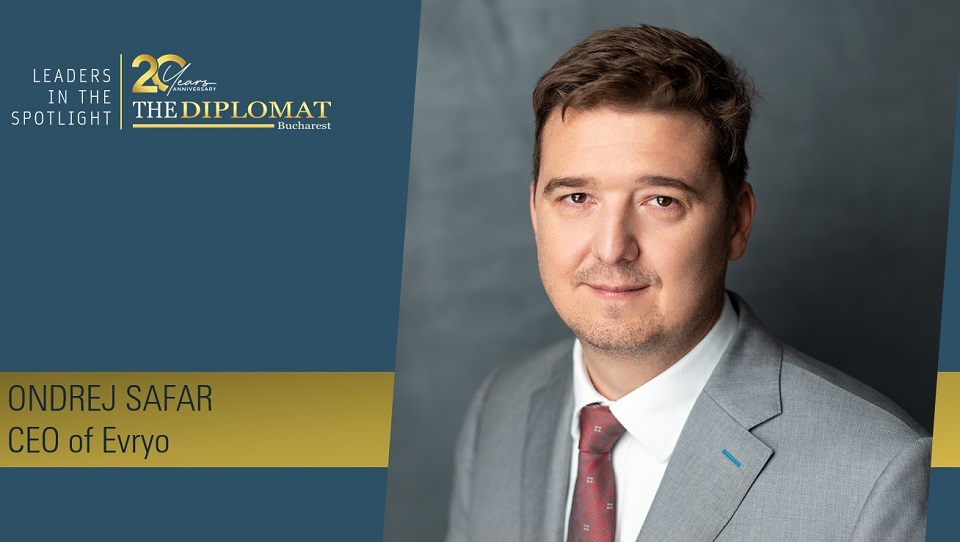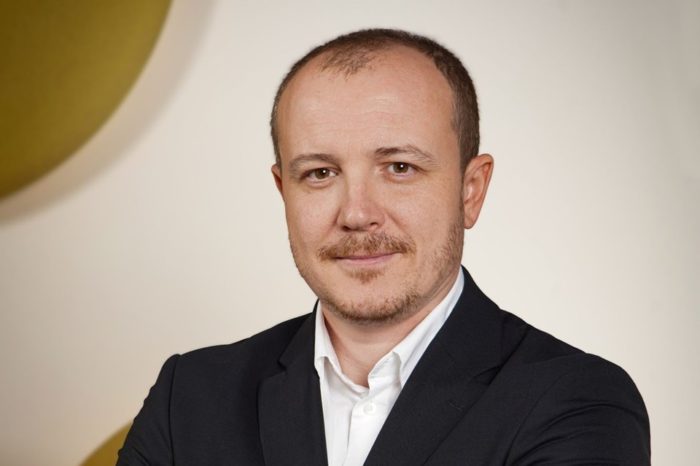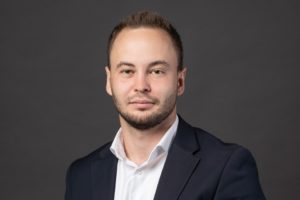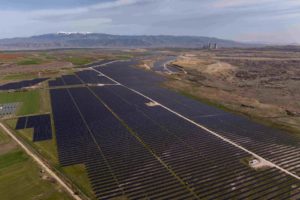Leaders in the spotlight’s specials series of interviews | Ondrej Safar, CEO of Evryo: The concept of “transition” will continue to be central in all aspects of energy

“For the near future and beyond, the concept of “transition” will continue to be central in all aspects of energy, from investments, production, and distribution to the entire economic landscape. We must have a clear vision of what the energy network will look like in 2050 to take the right steps towards the ongoing energy transition,” said Ondrej Safar, CEO of Evryo in an interview for marking the upcoming 20 years’ anniversary of The Diplomat-Bucharest.
We are already halfway through 2024, a year that has brought a significant change for us a new identity and a strengthening of the beliefs and ideas we have held so far.
With more energy for the good, we want to focus this year on our people, who are at the heart of our activities and for whom we develop programs and projects to ensure their safety. From a business perspective, we remain an important player in renewable energy production and continue to be the company with the largest number of prosumers at the national level. We have clear sustainability objectives and a target of zero emissions by 2040, with concrete plans to make these goals a reality.
For the near future and beyond, the concept of “transition” will continue to be central in all aspects of energy, from investments, production, and distribution to the entire economic landscape. We must have a clear vision of what the energy network will look like in 2050 to take the right steps towards the ongoing energy transition.
In the electricity distribution sector, studies indicate that investments of 1.2 billion euros annually are needed for the next 10 years
So far, the average annual investments of electricity distributors are around 0.4 billion euros. The question then arises: “How will we cover the remaining amount needed as indicated by the studies?”
Distribuție Energie Oltenia, the distribution operator of the Group, aims to invest up to 41 million euros in the Smart Transformation Project in the coming years and more through European funding to transition from a classic network to a smart one (Smart Grid) and to prepare for the upcoming years marked by the energy transition. To date, 104 stations of 110 kV and MV/LV have been fully digitized and integrated into the SCADA system.
The main obstacles in accelerating development are that the distribution network is not prepared to absorb the energy produced by prosumers. A significant increase in the volume of investment works is thus necessary. The current legal framework allows prosumers to inject much more power into the grid than their consumption needs, which can lead to variations in energy parameters outside the limits accepted by the performance standard.
Finally, while continuing to develop energy production and distribution, we must consider the inherent cybersecurity challenges resulting from integrating networks into a digital system. We need to ensure safe and continuous operation and secure distribution services from the perspective of occupational health and safety.
Fundamentals of leadership
From my perspective, in 2024, what matters most for a leader is to be transparent and empathetic, to understand the needs of their team, and to adapt quickly to changes. In an ever-evolving world, the ability to lead with certainty and promote a culture of continuous learning is essential.
If I were to convey a message to my team, I would reflect on the frequent meetings we’ve had since the beginning of this year, the open atmosphere, and the transparency with which we’ve discussed the year’s most important topics: working conditions and the safety of my people. Therefore, I can only say that together we are capable of overcoming any challenge. In 2024, we remain open to change, learn from every experience, and support each other. Together, we can turn any obstacle into an opportunity and stay safe. I also want to thank my colleagues for the enthusiasm with which they embrace our projects, the effort they put in during key moments when change comes overnight, and the optimism with which they approach it!
The fundamentals of leadership are based on integrity, effective communication, a clear vision, and the ability to inspire and motivate the team. A good leader must be a role model, show empathy, and be able to make tough decisions when necessary. I like to believe that our people feel safe with us, feel heard, and valued. My approach is based on a combination of transparency, collaboration, and continuous development. I believe in creating a work environment where every team member feels valued and encouraged to bring their unique contribution. I promote constructive feedback and encourage innovation through open and constant dialogue.
At the same time, leadership in energy, in the context of the energy transition, brings a new responsibility: achieving an active integration across the economic sector as a whole. In other words, it is the role of leaders in energy to explain, encourage, and facilitate the energy transition in terms of impact and benefits for all other sectors of the national economy.
Regarding leading teams and people. I believe it is essential to strengthen the culture of constructive feedback and promote a growth mindset. For us and our activities, safety is paramount—for ourselves, our consumers, our business partners, and everyone we interact with. People should generally be encouraged to learn from mistakes and view failures as learning opportunities. Additionally, it is important to promote a balance between professional and personal life to maintain morale and productivity at optimal levels. We are currently undertaking a comprehensive project, alongside top international specialists, to raise awareness about the importance of health and safety at the workplace. It is crucial for us to have a healthy organizational culture, based on clear principles that place people at the center of our activities.
The energy transition brings a development potential for the entire economic sector, even if the subject seems to target only the energy sector
For an important player in the energy market, like the Group I represent, the potential lies in the transition to green, clean energy. The electrical grid must become more flexible, smarter, and capable of managing the variability and decentralized distribution of renewable energy.
We estimate that by 2033, over 248,000 prosumers will be connected to the distribution networks, provided that funds are granted through various programs. Since we are in a transition period, with a significant increase in renewable energy, which is more volatile compared to traditional sources, energy storage will become a key factor in the coming years. Situations of energy surplus or deficit will increase, and this can be mitigated through flexibility (flexible products, consumption adaptation, etc.) and storage. Thus, storage becomes a necessity in the ecosystem, and this is the potential we aim to capitalize on.
Modernizing the national energy system is vital to meet future demands. This involves several measures, including optimizing distribution and transmission networks, transitioning to smart grids that allow for more efficient integration of renewable energy, precise monitoring and control of energy consumption, and maximizing the operational efficiency of existing assets and production.
The Distribuție Oltenia network is transitioning from a traditional distribution network to a smart grid. This is both a challenge and an opportunity. We continue to test the latest and most innovative technologies in the field through pilot projects carried out with both local partners and external technology firms to identify future smart solutions that enhance efficiency and improve the quality of services offered to our consumers. The digitalization strategy was revised at the end of 2023 and complemented with a new series of initiatives planned for implementation from 2025 to 2029, focused on the same four main pillars: Smart Grid, Advanced Analytics, Process Automation, and Customer Satisfaction.
Regarding Evryo’s renewable energy production portfolio, we are developing projects, some of which are national firsts, that maximize current assets. One example is the floating photovoltaic system at Grebla, installed on the stilling basin of the hydroelectric plant north of Reșița. In the Evryo Wind Park, we have already implemented an internationally patented technical solution to enhance production efficiency and are running several other storage and production maximization projects with expected results in the very near future.
In terms of opportunities, we can discuss a key factor in our success related to reducing our carbon footprint by lowering electricity consumption. We have focused on implementing innovative and efficient solutions to reduce energy consumption, which has significantly contributed to our sustainability objectives. Additionally, another important factor is the use of LPG as a fuel for transportation, a strategic choice that has allowed us to reduce pollutant emissions and improve operational efficiency.
Our interim objective by 2030 is for all companies within the Evryo Group to reduce emissions by approximately 50% compared to the 2019 baseline and to become carbon neutral by 2040, aiming for a reduction of over 95%. These ambitious objectives reflect our long-term environmental commitment. We made a significant step towards achieving our goals and reduced our carbon footprint in 2023 by 31% for Distribuție Oltenia, 64% for Evryo, and 20% for the Evryo Wind Park, compared to 2019.
Workplace safety is crucial for us
People are at the center of our activities, and we want them to work in a safe and healthy environment. Considering the most important pillars of the period—safety and sustainability—we take into account the following elements:
- Technological Innovation: Staying competitive and quickly adapting to industry change
- Sustainability and Green Energy: Sustainability is not just a trend but a necessity for the planet’s future. Companies investing in green energy can improve their public image, benefit from favorable regulations, and attract investors interested in social and environmental responsibility.
- Education and Workforce Development: A well-prepared workforce is essential for long-term success. Continuous education and professional development help employees be more innovative, better adapt to changes, and actively contribute to the company’s growth.
- Agility and Adaptability: In a dynamic industry, agility is essential to remain competitive. Agile companies can seize opportunities and minimize risks associated with market uncertainty and volatility.
- Corporate Governance and Ethics: A culture based on integrity and ethical responsibility builds trust among partners, investors, and customers. Effective corporate governance ensures transparent and responsible business management.














